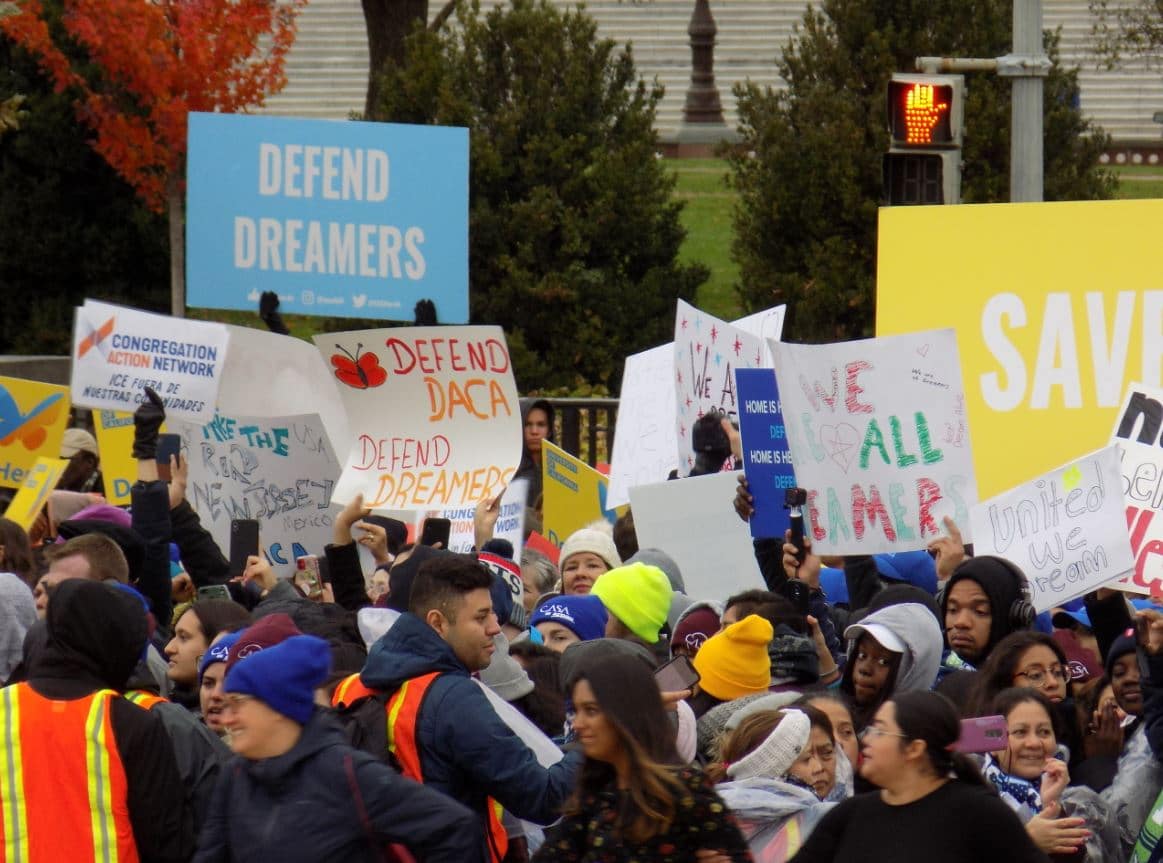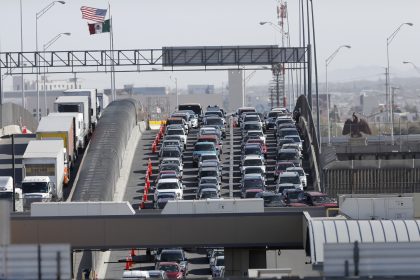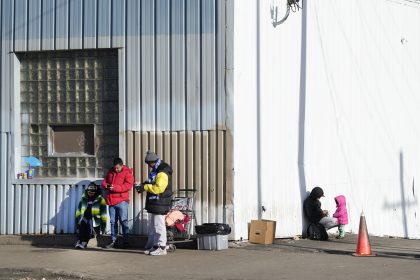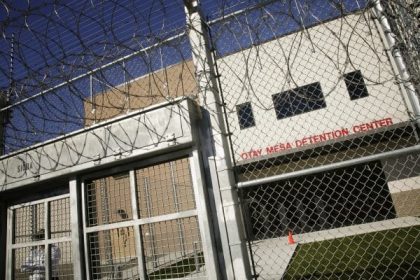Supreme Court Rules Trump Can’t Unilaterally End Obama-Era DACA Program

WASHINGTON – The U.S. Supreme Court ruled Thursday that President Donald Trump does not have the legal authority to abruptly rescind the Obama-era Deferred Action for Childhood Arrivals program, a decision that for now will protect about 650,000 young immigrants from deportation.
Chief Justice John Roberts, Jr., wrote the majority opinion, which was joined by the court’s four more liberal members, Justices Ruth Bader Ginsburg, Stephen Breyer, Sonia Sotomayor and Elena Kagan.
The five justices agreed the Trump administration violated the Administrative Procedure Act, which governs the process by which federal agencies develop and issue regulations, when it decided to end the DACA program because it neither considered all of the key issues surrounding that action, nor explained why the program was being rescinded.
President Trump responded to the decision via Twitter.
“These horrible & politically charged decisions coming out of the Supreme Court are shotgun blasts into the face of people that are proud to call themselves Republicans or Conservatives,” he wrote.”We need more Justices or we will lose our 2nd. Amendment & everything else. Vote Trump 2020!”
Minutes later, he added, “Do you get the impression that the Supreme Court doesn’t like me?”
In explaining the rationale behind the ruling, Chief Justice Roberts focused on the recession memorandum written by the then-Acting Department of Homeland Security Secretary Elaine Duke.
Roberts conceded that Attorney General Jeff Sessions determined DACA is illegal, but said deciding how best to address that determination involved “important policy choices” reserved for the Department of Homeland Security.
“Acting Secretary Duke plainly exercised such discretionary authority in winding down the program, but she did not appreciate the full scope of her discretion,” Roberts wrote. “The Attorney General concluded that the legal defects in DACA mirrored those that the courts had recognized in DAPA [a related program known as Deferred Action for Parents of Americans and Lawful Permanent Residents].
“The Fifth Circuit, the highest court to offer a reasoned opinion on DAPA’s legality, found that DAPA violated the [Immigration and Nationality Act] because it extended eligibility for benefits to a class of unauthorized aliens,” he continued.
“But the defining feature of DAPA (and DACA) is DHS’s decision to defer removal, and the Fifth Circuit carefully distinguished that forbearance component from the associated benefits eligibility. Eliminating benefits eligibility while continuing forbearance thus remained squarely within Duke’s discretion.
“Yet, rather than addressing forbearance in her decision, Duke treated the Attorney General’s conclusion regarding the illegality of benefits as sufficient to rescind both benefits and forbearance, without explanation,” Roberts said.
Four of the five justices in the majority rejected the challengers’ contention that the administration’s decision to end DACA was motivated by an intent to discriminate against Latinos, Justice Sotomayor being the only hold out.
In a concurring opinion, she explained that she simply could not join the other members in dismissing statements President Trump made both before and after he assumed office, “including declarations that Mexican immigrants are ‘people that have lots of problems,’ ‘the bad ones,’ and ‘criminals, drug dealers, [and] rapists.'”
Sotomayor goes on to fault the other members of the majority for letting the comments pass as it related to the case at hand because they were “remote in time” and “made in unrelated contexts.”
“’Nothing in our precedent supports [the] blinkered approach of disregarding any of the campaign statements as remote in time from later-enacted policies,” the justice said.
“Taken together, ‘the words of the President’ help to ‘create the strong perception’ that the rescission decision was ‘contaminated by impermissible discriminatory animus,’” she concluded.
Justices Clarence Thomas, Neil Gorsuch and Brett Kavanaugh also said they saw no discriminatory intent in the administration’s action, but they dissented from the rest of the ruling.
In dissent, Justice Thomas wrote, “Today’s decision must be recognized for what it is: an effort to avoid a politically controversial but legally correct decision.
“The Court could have made clear that the solution respondents seek must come from the Legislative Branch,” he said. “Instead, the majority has decided to prolong DHS’ initial overreach by providing a stopgap measure of its own.
“In doing so, it has given the green light for future political battles to be fought in this Court rather than where they rightfully belong—the political branches,” Thomas continued.
“Such timidity forsakes the Court’s duty to apply the law according to neutral principles, and the ripple effects of the majority’s error will be felt throughout our system of self-government,” he concluded.
The Deferred Action for Childhood Arrivals program was announced by President Barack Obama in 2012.
It allows young people brought to the United States as children to apply for a temporary status that shields them from deportation and allows them to work. The status lasts for two years and is renewable, but it does not provide a path to citizenship.
Thursday’s ruling is a blow to President Trump as it derails one of his main campaign promises from 2016: that he would immediately terminate the program by executive order.
Roberts called this action “arbitrary and capricious.”
The ruling means the administration will now have to provide lower courts with a better justification for ending the program, a process that is likely to extend well beyond the November election.
Rep. Bennie G. Thompson, D-Miss., chairman of the Committee on Homeland Security, was among those Thursday who said they were pleased by the Supreme Court’s decision.
“While we must do more to protect Dreamers, they can rest assured that America is their home and they are here to stay,” Thompson said. “Communities across the country, including most in President Trump’s own party, agree that the Dreamers are Americans and deserve citizenship.
“This is a victory, but we must continue to fight the Trump Administration’s horrid anti-immigrant policies,” he added. “As a country founded on immigration, we cannot allow the President to ignore our country’s values in order to politically pander to his base.”
Also commenting in the House were Reps. Derek Kilmer, of Washington State, and Pete Aguilar, of California, chair and whip, respectively, of the New Democrat Coalition.
“The Supreme Court decision to stop the Trump administration from ending this life-changing program for now is great news for the thousands of Dreamers who have built their lives here, in the only country they’ve known as home,” they said in a joint statement. “While this decision provides temporary relief, we cannot allow the President to continue to use these young people as pawns to enact a cruel anti-immigrant agenda. The Senate must act immediately to codify the protections afforded by the DACA program.”
“Dreamers contribute to our communities and boost our economy, create jobs, and raise wages for U.S. citizens. More than 200,000 DACA recipients are essential workers helping our communities survive the COVID-19 crisis. This includes nearly 30,000 DACA recipient health care workers, like doctors and nurses, who are on the frontlines of this response,” they said.
“Now more than ever we urge the Senate to pass the Dream and Promise Act to ensure DACA recipients and all Dreamers contributing to our communities every day can continue living their lives here and have a chance to earn citizenship,” Kilmer and Aguilar added.
California Gov. Gavin Newsom also applauded the decision, calling it “an important victory, for now, for the hundreds of thousands of Dreamers — including over 200,000 Californians — who contribute deeply to their communities each day.
“They are our neighbors, our coworkers and our friends, and in California, we will continue to have their backs,” he said.
Newsom said there still needs to be a permanent solution for undocumented Californians, adding that a pathway to citizenship “is not enough.”
“This moment reminds us we are confronting the systemic injustice and racism that exists within our nation and institutions. We will fight for everyone to be treated with dignity and respect,” Newsom said.
But Texas Attorney General Ken Paxton disagreed.
“We are disappointed with today’s SCOTUS decision, but it does not resolve the underlying issue that President Obama’s original executive order exceeded his constitutional authority. We look forward to continuing litigating that issue in our case now pending in the Southern District of Texas.”























